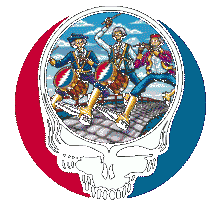Phil's Oral History Project

I think this is a great idea. I always love hearing stories about "back in the day" and look forward to what this can acheive. It began yesterday...
From phillesh.net:
Why do the Sixties remain so devilishly fascinating to us today?
Is it the sense of an opportunity lost, or a vision brought to life?
For our elders, is it nostalgia for a golden age?
I've always thought of that period as a second Renaissance; where in 15th century Florence the lost knowledge and art of the ancient Greece and Rome was reintegrated into Western culture, in San Francisco in the 60s the introduction of non-Western ideas and philosophies began to widen our culture into something truly global; a very necessary development, if we want our species to survive the next century without self-destructing.
Here’s Allen Cohen, the publisher of the SF Oracle:
The predominant feeling among hippies from about 1965 through the summer of '67 was that we were agents and witnesses of a dawning of a new age. An age in which the warrior spirit, that had vaulted western man to the domination and potential destruction of creation, would be dissolved in the spiritual transcendence of the saint. Ghandi and Martin Luther King were our heroes, and we had turned to the rich heritage of Asian mysticism and metaphysics for our inspiration and our practice. We leaped across oceans and through time to pre-Christian mythologies like the American Indian, the Egyptian and the occult and pagan philosophies of Europe. We studied with Buddhists and Indian gurus, native shamans, witches and yogis. We turned from Aristotelian and Christian dualism to the four pronged logic of Vedanta philosophy. We studied the Upanishads, the Tao Te Ching, Alan Watt's books on Zen Buddhism, and Hesse's novels, especially Siddhartha. We wouldn't leave the house without consulting the I Ching, or our Tarot cards or our astrological charts. We were becoming world citizens. Peace and love weren't just slogans but states of mind and experiences that we were living and bearing witness to. Living in harmony with the earth was an ideal that we felt and perceived as real experience.
That’s how many of us saw it then; how do we see it now?
How have the values, ideas and practices that meant so much to us then
pertain to our lives today? To help answer some of these questions,
we’re inaugurating an oral history project.



0 Comments:
Post a Comment
<< Home